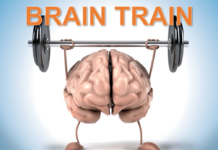Pexels: Blue Bird
What is the best time to do cardio? Should you do it before, after, during, or separate from weight-training? And whether or not you hit the weights on the same day, is it best to do cardio in the morning, afternoon, or evening? We checked out the science to see if there’s an ideal time to burn calories and preserve muscle with cardio.
CARDIO BEFORE WEIGHT-TRAINING
There are several advantages to doing cardio first in a workout:
Warm-up and Preparation: Starting your workout with cardio can serve as an effective warmup. It raises your heart rate, increases blood flow, and prepares your muscles for the subsequent lifting session.
Fat Burning: Engaging in cardio before weight-training can help burn stored glycogen and fat as a source of fuel during the cardio session. This can be beneficial for individuals aiming to prioritize fat loss.
Endurance and Aerobic Capacity: If your primary goal is to improve cardiovascular endurance or train for endurance sports, doing cardio before weights allows you to focus on your aerobic capacity while you’re fresh and have more energy.
However, beware of this potential downside:
Depleting Energy and Strength Levels: Performing intense cardio before weightlifting can potentially deplete your energy reserves, which may impact your strength and performance during resistance exercises.

WEIGHT-TRAINING BEFORE CARDIO
And here’s the pluses to hitting the weights before cardio:
Preserving Energy and Strength: Prioritizing weight training at the beginning of your workout allows you to allocate your energy and strength to lifting weights. This is particularly beneficial if your primary goal is to build muscle or increase strength.
Elevated Calorie Burn: Weightlifting can deplete glycogen stores, making your body more likely to rely on stored fat as fuel during the subsequent cardio session. This can contribute to increased overall calorie burn.
However, beware of this potential downside:
Reduced Cardio Performance: Following weightlifting with cardio may result in slightly decreased cardio performance due to fatigue. Adjust the intensity and duration of your cardio accordingly, especially if you do cardio at the end of leg day.
CARDIO WITH WEIGHT-TRAINING
You can also do cardio with weight-training, adding 30-60 second intervals of cardio between sets of lifting exercises. So, for example, hop on a nearby stationary bike for a minute of peddling between sets of shoulder presses. Or, if you’re afraid you’ll lose your station, do bodyweight cardio—jumping jacks, burpees, stationary jogging, etc.—between sets. Go back and forth like this throughout your workout, weights with cardio, for a sort of CrossFit session. If you’re worried this will lessen your workout recovery, don’t. A study actually demonstrated that cardio between sets enhances muscle recovery [1].
Saved Time: Combining cardio with weight-training fills up the dead time between sets when you might be staring at your phone with work that is so short it may not feel like work. And at the end of your workout, you’ve got all your cardio in without using any extra time.
CARDIO SEPARATE FROM WEIGHT-TRAINING
Another option is to perform cardio and weight training in separate workouts. For years, there was a belief, based by scant evidence, that cardio with weight-training robbed strength and muscle gains. As more recent studies have demonstrated, this is not true [2]. However, if you have time for two daily workouts, it may still be preferable to do weights and cardio separately, especially if you do particularly intense cardio.
Improved Task Focus: Separate workouts allow you to best compartmentalize your goals for weight-training and cardio.
Another option is to avoid, as best you can, working the muscles you train with weights and those you stress with cardio on the same days. So, no leg-intensive cardio (peddling, jogging, stepping, etc.) on leg day, no cardio rowing on back day, and no battle ropes on shoulder or arm day.
Maximized Performance: Doing cardio and weights on separate days assures neither interferes with the recovery for and performance of the other.
MORNING CARDIO
These are the advantages of AM cardio:
Metabolism Boost: Morning cardio can help jumpstart your metabolism, leading to increased calorie burn throughout the day. Studies have found that exercise in a fasted state, such as in the morning before breakfast, enhances fat oxidation [3].
Energy and Focus: Morning workouts can provide an energy boost, enhance mental clarity, and set a positive tone for the day ahead. The release of endorphins during exercise can help improve mood and productivity [4].
Consistency: Scheduling your workout first thing in the day reduces the chances of unforeseen events derailing your exercise plans later in the day. By prioritizing exercise early, you establish a consistent routine and reduce the likelihood of skipping cardio [5].

AFTERNOON CARDIO
These are the potential benefits to afternoon cardio:
Energy Recharge: Engaging in cardio exercise during the afternoon can help combat midday fatigue, providing a natural energy boost to power through the remainder of the day. This can be especially beneficial for individuals who have sedentary jobs.
Productivity Enhancer: Taking a break from work or study to engage in cardio can improve focus, mental clarity, and overall productivity. Physical activity stimulates blood flow and oxygen delivery to the brain, promoting cognitive function [6].
Stress Relief: Afternoon cardio can help reduce tension, anxiety, and the accumulated stress of the day. [7].
EVENING CARDIO
PM cardio has these potential advantages:
Stress Reduction: Evening cardio sessions can help alleviate stress, anxiety, and tension accumulated throughout the day [8].
Improved Sleep: While intense exercise close to bedtime can elevate heartrate and stimulate the body, making it harder to fall asleep for some individuals, moderate-intensity cardio done earlier in the evening may promote better sleep. A study published in the Journal of Sleep Research found that aerobic exercise in the evening resulted in more time spent in deep sleep [9].
CONCLUSION: BEST TIME FOR CARDIO
While understanding the potential benefits of different cardio timings is essential, it is equally important to consider your personal preferences, goals, and schedule. Consistency is key when it comes to exercise, so choose a cardio time that aligns with your lifestyle and enables you to maintain a regular routine. The best time for cardio is the time when you can repeatedly perform it.
Sources
1. Davis, W. J., et al. Elimination of delayed-onset muscle soreness by pre-resistance cardioacceleration before each set. J Strength Cond Res, 2008 Jan;22(1):212-25.
2. Petre, H, et al. (2021) Development of Maximal Dynamic Strength During Concurrent Resistance and Endurance Training in Untrained, Moderately Trained, and Trained Individuals: A Systematic Review and Meta-analysis, Sports Med, 51(5):991-1010.
3. Horowitz, J. F., et al. (1997). Substrate metabolism when subjects are fed carbohydrate during exercise. Journal of Applied Physiology, 83(5), 1355-1361.
4. Boecker, H., et al. (2008). The runner’s high: opioidergic mechanisms in the human brain. Cerebral Cortex, 18(11), 2523-2531.
5. Lally, P., et al. (2009). How are habits formed: Modelling habit formation in the real world. European Journal of Social Psychology, 40(6), 998-1009.
6. Hillman, C. H., et al. (2008). Be smart, exercise your heart: exercise effects on brain and cognition. Nature Reviews Neuroscience, 9(1), 58-65.
7. Salmon, P. (2001). Effects of physical exercise on anxiety, depression, and sensitivity to stress: a unifying theory. Clinical Psychology Review, 21(1), 33-61.
8. Stults-Kolehmainen, M. A., & Sinha, R. (2014). The effects of stress on physical activity and exercise. Sports Medicine, 44(1), 81-121.
9. Chen, M. J., et al. (2014). The effects of exercise on sleep in adults with chronic insomnia: a systematic review and meta-analysis. Sleep Medicine Reviews, 18(6), 497-507.
FURTHER READING
Cardio Workouts: How to Correct the 5 Biggest Mistakes
















































